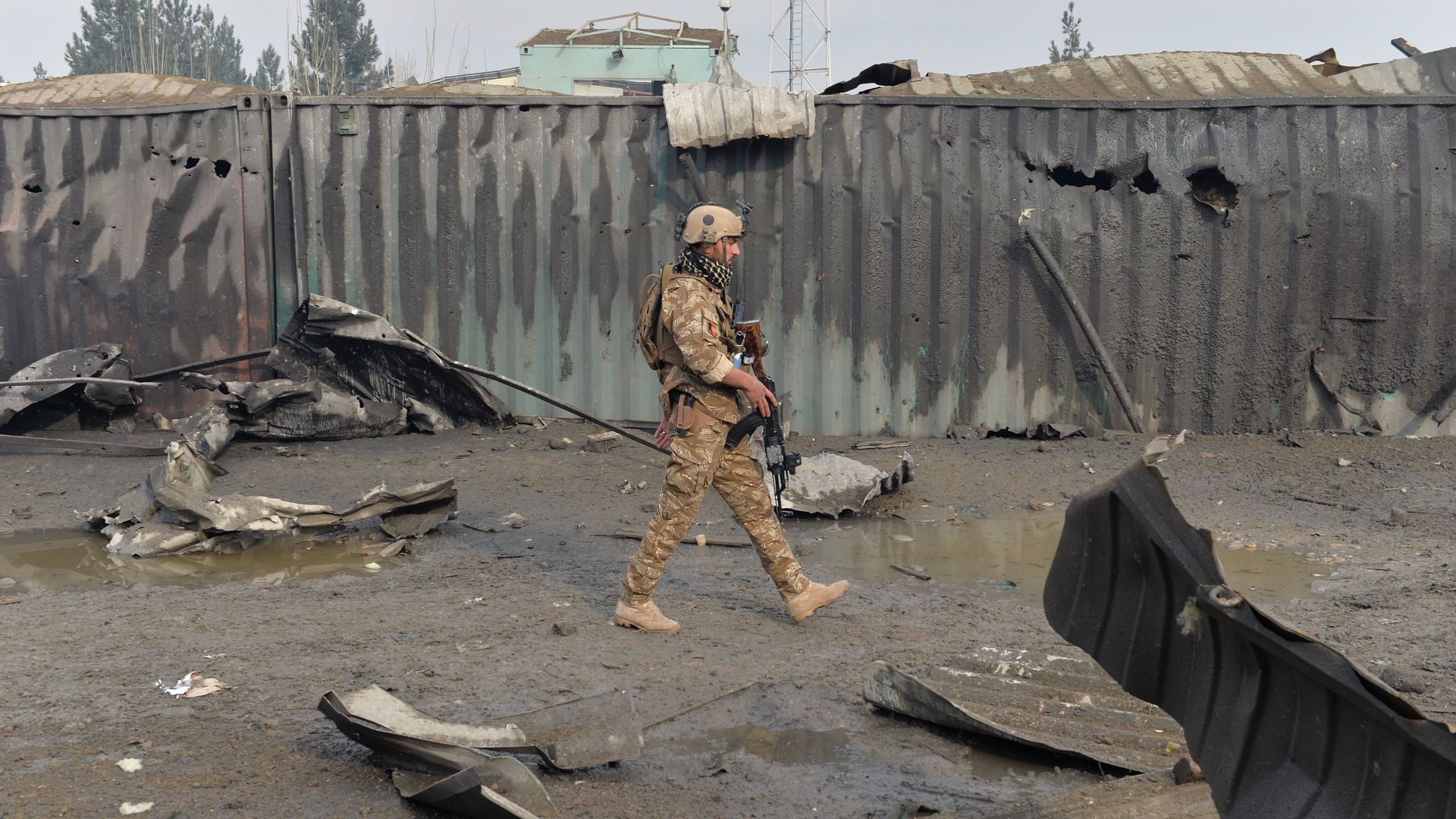Dec 21, 2018
Expert VoicesTrump's hasty withdrawal from Afghanistan could imperil peace process
Add Axios as your preferred source to
see more of our stories on Google.

A member of the Afghan security forces at the site of a suicide bomb attack that killed at least 10 in Kabul, on Nov. 29. Photo: Noorullah Shirzada/AFP via Getty Images
